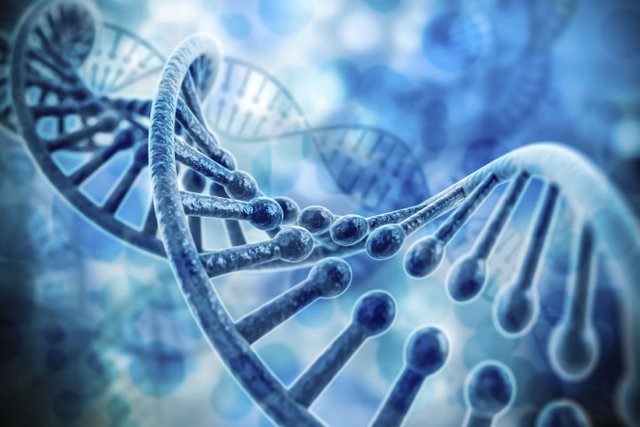Could Drugs Make You a Better Person?
Mind altered states takes one out of the realm of reality, so many of our mind-altering drug-taking friends claim with both negative and positive effects.
Sigmund Freud was said to use cocaine, as he mastered one of his most distinctive concepts, psycho-sexual theory.
From 1942, the Nazi leader Adolf Hitler -- in his quest for “white supremacy" -- received daily injections of amphetamines from his doctor to reduce fatigue and heighten aggression.
Both are examples of the positive and negative effects.
Performance-enhancing drugs and alcohol are generally used to enhance performance in competitive settings, as well as the sports arena and the entertainment field. It is widely publicized that drugs run rampant, from intentional modes of altered consciousness, including hypnosis, self hypnosis, meditation and drugs, to the use of psychoactive and addictive drugs, and altered states of consciousness.
While some altered states of consciousness have produced wonder boys and wonder girls; I think we all know who they are---those who lived to reach infamy, and those who did not. Under the influence, while some of these altered states make us reconsider and reprocess, as in sleep, dreaming or day-dreaming, meditating, hypnosis, self-hypnosis, etc, others have more far-reaching effects and the results can be life-altering.
Psychotherapists and Researchers
The belief-system that underlies the thinking of most psychotherapists and lay persons since Freud with regard to traumatic experiences, is that highly disturbing memories need to be expressed, even if it means digging them out of the unconscious, usually in vast and excruciating detail.
According to this theory, if unexpressed, these toxic and/or repressed memories will seep out in the form of various psychological symptoms, such as anxiety, physiological disorders, obsessive compulsive disorder, panic reactions, addictions, depression, impaired immune system, asthma, fatigue, etc. and/or in personality disorders such as suspiciousness, passive-aggressiveness, dependency, borderline impulsiveness, social withdrawal, etc.
Remarkable research and technological advances in the past two decades have proved that brain disruption and damage play central roles in the consequences of abuse and addiction. Knowing the nature of a problem, of course, opens the way for a more systematic attempt to fix it.
Disease or Disorder?
Addiction can be either a disease or disorder. According to some neuroscientists, addiction is a chronic disease similar to other chronic diseases, such as type II diabetes, cancer, and cardiovascular disease. Dopamine binds to its receptors quickly. There is pharmacological evidence which suggests that the positive symptoms of for example, schizophrenia is caused by the biochemical disorder of a dopamine hypothesis.
Many psychologists take the position that addiction is a series of decisions, a disorder of choice that causes addiction. I am also of the opinion that its control and its potential reduction, to be the same as the causes control and reduction of all voluntary behavior; or that dopamine serves as the reinforcement in addiction.
Additionally, according to other psychologist, whose approach to voluntary behavior is more conceptual than its approach to addiction, confirms these convergences in clear and compelling prose with evidence from real-world observation and psychological and pharmacological laboratories. They posit that addiction is a choice, not a disease.
Are Biological Factors Involved?
The biological approach to motivation defining abnormal behavior is based on detecting a disease or disorder of the nervous system.
Many of the classic psychiatric syndromes are recognized as brain diseases involving abnormal levels of neurotransmitters---the chemicals that neurons use to communicate.
On the contrary, a lot of people are likely to accredit to any practice they do not favor as a disorder or worst as a disease. The idea that alcoholism is a disorder or a disease, for example, is quite dubious, although it is a widely accepted idea.
Even when there are biological factors that attribute to a conflict, the environment usually plays a vital role as well. Biological means to defining flaws may encourage people to forget or ignore environmental factors that are very easy to alter than genetics or brain disorders.
A study of adopted children demonstrate that two specific risk factors encouraged alcoholism.
Alcoholism in the family, whereby one or both genetic parents were alcoholic, and drinking in the family environment, when the adoptive parents had drinking problems.
Whether it is heredity or an environmental factor that could potentially increase risk of alcoholism, it is very obvious that the environment can be altered and manipulated after a person is born, if someone wants to prevent alcoholism from further developing.
I wonder if it is true that Mahatma Gandhi used alcohol and drugs to reach a heightened state of consciousness? Some say he did!
Source: Feldman, R Feldman - Understanding Psychology




Go here https://steemit.com/@a-a-a to get your post resteemed to over 72,000 followers.